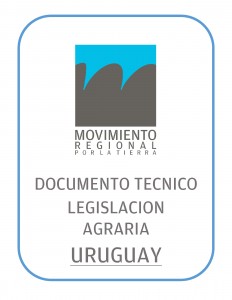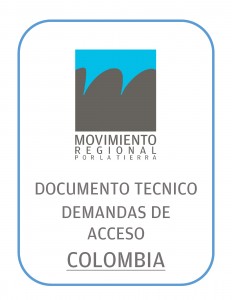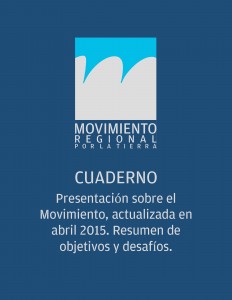Legislación sobre acceso a la tierra en el Uruguay - Pablo Diaz. (julio 2015)
Se trata de un aporte técnico para entender el contexto político, reivindicativo, pero principalmente legislativo del acceso a la tierra de sectores populares en el medio rural del Uruguay actual. El estudio parte de la intervención del Estado sobre el acceso a la tierra a través de las leyes e instrumentos complementarios a las mismas y la trama de sus aplicaciones concretas. Por lo tanto es un documento…




